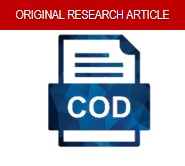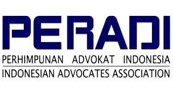Opportunities for the Digital Implementation of Legalization and Certification by Notaries Public
DOI:
https://doi.org/10.46924/jihk.v7i1.274Keywords:
Electronic Document Legalization, Digital Waarmerking, Notary Public, Legal Clarity and SecurityAbstract
The advancement of digital technology has brought significant changes to various aspects of life, including the notary sector. The digitalization of notary services has become a crucial issue, particularly concerning the legalization and certification of documents. This development raises questions about the prospects, legality, and legal challenges associated with its implementation. This study aims to analyze the legal standing and authority of notaries in digital legalization and certification, as well as to examine the validity of documents within the Indonesian legal system. The research employs a normative juridical approach, analyzing regulations, legal doctrines, and court decisions. According to the Notary Law (UUJN), legalization and certification fall under the authority of notaries. However, digitalization still presents challenges, such as document security and legal certainty. Therefore, clearer regulations are necessary to ensure that this process can be carried out securely and in compliance with the law
Downloads
References
Journals
Abida, Rafly Dzikry, and Rizky Ramadhani Irham. “Tanggung Jawab Notaris Terhadap Waarmerking Akta Di Bawah Tangan Yang Pembuatannya Dibantu Oleh Notaris.” Jurnal Education and Development 9, no. 1 (2021): 154–57. https://doi.org/10.37081/ed.v9i1.2328.
Apriani, Nabilah, Irgi Alfian, and Melia Putri Purnama Sari. “The Application of Cyber Notary in Indonesia.” Jurnal Ius Constituendum 9, no. 1 (2024): 101–16. http://dx.doi.org/10.26623/jic.v9i1.8129.
Bungdiana, Desy, and Arsin Lukman. “Efektivitas Penerapan Cyber Notary Dengan Meningkatkan Kualitas Pelayanan Notaris Pada Era Digital.” Jurnal Ilmu Sosial Dan Pendidikan 7, no. 1 (2023): 309–18. http://dx.doi.org/10.58258/jisip.v7i1.4216.
Darmansah, Tengku, Agung Muhammad Nur, Hasbih Soleh Suryadi, and Lucky Tirta Nurarfiansyah. “Tantangan Dan Solusi Dalam Pengelolaan Arsip Di Era Digital.” Jurnal Ekonomi Dan Bisnis Digital 2, no. 1 (2024): 16–20. https://jurnal.ittc.web.id/index.php/jebd/article/view/1190.
Jamus, Mohammad, Grimaldi Setia Budi, Dian Rosita Sari, and Indah Parmitasari. “Problems of Implementing Cyber Notary in Notarial Deeds in Indonesia.” Sultan Agung Notary Law Review 6, no. 3 (2024): 57–79. http://dx.doi.org/10.30659/sanlar.v6i3.42422%0A.
Koos, Stefan. “The Digitization of Notarial Tasks: A Comparative Overview and Outlook of ‘Cyber Notary’ In Indonesia and Germany.” The Indonesian Journal of Socio Legal Studies 2, no. 2 (2023): 1–26. https://doi.org/10.54828/ijsls.2023v2n2.1%0A%0A.
Kridawidyani, Widya, Astrid Athina Indradewi, Fajar Sugianto, and Tomy Michael. “The Legal Advantages of Blockchain Technology For Notary Protocol Archives.” Journal of Law and Policy Transformation 8, no. 2 (2023): 234–46. https://journal.uib.ac.id/index.php/jlpt/article/view/9125.
Omiyani, Selva, Suprapto Suprapto, and Saprudin Saprudin. “Digitalisasi Tandatangan Secara Elektronik Dengan Menggunakan Akta Notaris.” Notary Law Journal 3, no. 1 (2024): 12–28. https://doi.org/10.32801/nolaj.v3i1.55.
Prakoso, Wibby Yuda, and Gunarto Gunarto. “Tanggung Jawab Dan Akibat Hukum Dari Akta Notariil Yang Dibuat Oleh Notaris Pengganti Setelah Masa Jabatannya Selesai.” Jurnal Akta 4, no. 4 (2017): 773–78. http://dx.doi.org/10.30659/akta.v4i4.2524.
Putri, Ovie Sumita, Lovelly Dwina Dahen, and Irfan Ridha. “Tinjauan Yuridis Keabsahan Dan Kekuatan Pembuktian Tanda Tangan Elektronik (Digital Signature) Dengan Menggunakan Aplikasi Privy Dalam Perjanjian Berdasarkan KUHPerdata.” Journal of Sharia and Law 2, no. 4 (2023): 1157–82. https://jom.uin-suska.ac.id/index.php/jurnalfsh/article/view/1482.
Sona, Mahfuzatun Ni’mah. “Penerapan Cyber Notary Di Indonesia Dan Kedudukan Hukum Akta Notaris Yang Bebasis Cyber Notary.” Officium Notarium 2, no. 3 (2022): 497–505. https://doi.org/10.20885/JON.vol2.iss3.art12.
Tan, Winsherly, Shenti Agustini, and Ampuan Situmeang. “The Urgency of Implementing a Cyber Notary in Indonesia: A Comparative Study with The United States.” Sasi 30, no. 3 (2024): 274–86. https://doi.org/10.47268/sasi.v30i3.2258.
Proocedings
Kusumawardhani, Sang Ayu Made Ary. “The Power of Law Action Waarmerking by Notary Official Regarding Under Hand Deed.” In Proceedings of The International Conference on Multi-Disciplines Approaches for The Sustainable Development, 288–93. Denpasar: Dwijendra Univeristy, 2023. https://eproceeding.undwi.ac.id/index.php/mdasd/article/view/247.
Books
Adjie, Habib. Hukum Notaris Indonesia: Tafsir Tematik Terhadap UU No 30 Tahun 2004 Tentang Jabatan Notaris. Bandung: Refika Aditama, 2009.
Kaelan, Kaelan. Metode Penelitian Kualitatif Interdisipliner. Yogyakarta: Paradigma, 2012.
Kusumaatmadja, Mochtar. Mochtar Kusumaatmadja Dan Teori Hukum Pembangunan. Seri Tokoh Hukum Indonesia. 1st ed. Jakarta: Epistema Institute, 2012.
Regulations
Pemerintah Republik Indonesia. Undang-Undang Nomor 19 Tahun 2016 jo Undang-Undang Nomor 11 Tahun 2008 tentang Informasi dan Transaksi Elektronik (2016). https://peraturan.bpk.go.id/Details/37582/uu-no-19-tahun-2016.
———. Undang-Undang Nomor 2 Tahun 2014 tentang Perubahan atas Undang-undang Nomor 30 Tahun 2004 tentang Jabatan Notaris (2014). https://peraturan.bpk.go.id/Details/38565/uu-no-2-tahun-2014.
Web Pages
Asosiasi Penyelenggara Jasa Internet Indonesia (APJII). “APJII Jumlah Pengguna Internet Indonesia Tembus 221 Juta Orang.” Asosiasi Penyelenggara Jasa Internet Indonesia (APJII), 2024. https://apjii.or.id/berita/d/apjii-jumlah-pengguna-internet-indonesia-tembus-221-juta-orang.
Pengadilan Negeri Tulungagung. “E-WAAS (Elektronik Waarmerking Service)-Pengesahan Akta Dibawah Tangan.” Pengadilan Negeri Tulungagung, 2022. https://pn-tulungagung.go.id/berita-terkini/utama/berita/e-waas-elektronik waarmerking-service-pengesahan-akta-dibawah-tangan.
Downloads
Published
Issue
Section
License
Copyright (c) 2025 Imam Endrik Pratama

This work is licensed under a Creative Commons Attribution 4.0 International License.
Authors who publish with this journal agree to the following terms:
- Copyright on any article is retained by the author(s).
- The author grants the journal, the right of first publication with the work simultaneously licensed under a Creative Commons Attribution License that allows others to share the work with an acknowledgment of the work’s authorship and initial publication in this journal.
- Authors are able to enter into separate, additional contractual arrangements for the non-exclusive distribution of the journal’s published version of the work (e.g., post it to an institutional repository or publish it in a book), with an acknowledgment of its initial publication in this journal.
- Authors are permitted and encouraged to post their work online (e.g., in institutional repositories or on their website) prior to and during the submission process, as it can lead to productive exchanges, as well as earlier and greater citation of published work.
- The article and any associated published material is distributed under the Creative Commons Attribution 4.0 International License



 Sinta ID:
Sinta ID: 


















